Finding common ground to counter terror
India and China have divergent approaches to terrorism emanating from Pakistan. How can New Delhi prod Beijing to act on its concerns about the terrorist infrastructure in Pakistan?
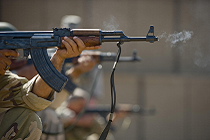 Courtesy: DVDSHUB/Flickr
Courtesy: DVDSHUB/Flickr
India and China have divergent approaches to terrorism emanating from Pakistan. How can New Delhi prod Beijing to act on its concerns about the terrorist infrastructure in Pakistan?
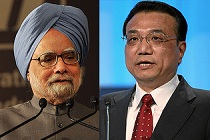 Courtesy: Flickr/CreativeCommons
Courtesy: Flickr/CreativeCommons
Chinese Premier Li Keqiang’s visit to India next week is unlikely to fast-track a resolution of the Sino-Indian territorial dispute. Li may suggest confidence-building mechanisms on the border, but these proposals need scrutiny. China’s border agreements with other neighbours are indicators of what India can expect
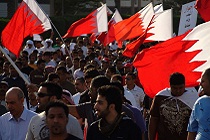 Courtesy: Al Jazeera English/Flickr
Courtesy: Al Jazeera English/Flickr
Two years ago, during the Arab Spring uprisings in several West Asian nations, youth and pro-democracy movements flared up on the Persian Gulf island of Bahrain. In light of these events, this paper assesses how Bahrain’s policies toward its Shia constituency have affected relations between Sunni and Shia groups.

This daily column includes Gateway House’s Badi Soch – big thought – of the day’s foreign policy events. Today’s Badi Soch looks at how secularism is faring in South Asia.
 Courtesy: PML-N
Courtesy: PML-N
The high level of enthusiasm expressed by New Delhi – for former Prime Minister Nawaz Sharif’s expected return to power – may perhaps be premature. India be patient with the new government in Islamabad.

This daily column includes Gateway House’s Badi Soch – big thought – of the day’s foreign policy events. Today’s focus is on the elections and new government in Pakistan.
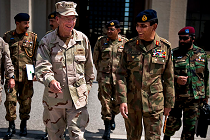 Courtesy: United States Navy
Courtesy: United States Navy
Gateway House’s Ambassador Neelam Deo, in a debate, titled ‘The civil-military equation in Pakistan has begun to tilt in favour of civilians,’ argues in her closing remarks that Pakistan will need sympathy and support as it confronts the complex choices that the democratisation process continually throws up.
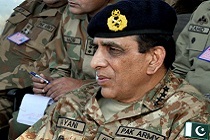 Courtesy: Pakistan97/WikimediaCommons
Courtesy: Pakistan97/WikimediaCommons
Gateway House’s Ambassador Neelam Deo, in a debate, titled ‘The civil-military equation in Pakistan has begun to tilt in favour of civilians,’ argues in her rebuttal that the changes in Pakistan resemble a one-step-forward-and-two-steps-backwards process rather than a move up to the next level.
 Courtesy: Benchill/WikimediaCommons
Courtesy: Benchill/WikimediaCommons
The national election in Pakistan looks like a game of polarisation, but if democracy is meant to provide some relief and prosperity, all political parties have flopped, bottom up. The field is now wide open, and anything can happen - including a hung parliament.
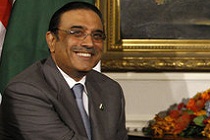 Courtesy: Eric Draper/WikimediaCommons
Courtesy: Eric Draper/WikimediaCommons
With Pakistan geared for a defining general election scheduled for May 11, Council on Foreign Relations' Daniel Markey, in a debate, titled ‘The civil-military equation in Pakistan has begun to tilt in favour of civilians,’ argues for the motion.